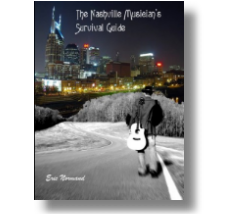The Boston Globe recently published an article titled “Pay to Play – strict enforcement of copyright’s jeopardizing live music in small venues”. The piece revealed how small music venues and coffee shops across New England have recently been targeted by PRO’s (Performance Rights Organizations) regarding the payment of licensing fees. Many of these venues, ranging from library cafés to coffee houses and eateries in strip malls, feature local performers playing music that varies from originals to covers, often playing for tips.
Any venue in which music is publicly performed is required by copyright law to purchase a performance license. Licensing fees also apply to recorded music as well. In the United States there are three PRO’s; ASCAP, BMI, and SESAC who collect these fees and distribute them to the songwriters. For any given venue, the licensing fee is determined by its size and seating capacity, the number of weekly performances, and its sales revenue among other factors. $300 yearly is a rough average for a small coffeehouse, essentially a dollar a day.
The debate has been long-lived regarding why it is necessary for a small venue that features mainly original music to pay a licensing fee, as they are not benefiting from the music of big-time songwriters. Or why should a venue that only has cover bands have to pay a fee, as obviously there’s no way of keeping track of all the different songs that are played over the course of a year making it impossible for all of those songwriters to be compensated. (It is noteworthy to mention that only venues are charged these fees, not performers).
Many businesses use music to enhance their operations, and the flipside of this argument is that these fees are simply the cost of doing business. Whether a coffee shop has original or cover performers, either way, they are having live music at their venue because it helps increase their business. While songwriters are not paid every time a local band covers their songs in some small town bar, the bar and the songwriters do benefit from the performance of that song. The bar benefits because the performance of popular music is a part of their business, if it wasn’t, they wouldn’t have it. The songwriters benefit because this live performance is essentially free advertising and inevitably must contribute to its popularity and increased overall sales.
Another way to look at this would be that it is no different than paying for a liquor license. If you want to serve beer, you’re paying a fee for the right to serve beer. While it might seem strange that the PRO’s collect fees for the performance of songs written by their members and yet these songwriters don’t receive any payment for these specific performances, the PRO’s do collect and disperse fees for all the countable plays of a given song. This wouldn’t happen for the songwriters if these organizations did not exist.
But society wouldn’t benefit from live music on a local level if there were no musical performers to play these songs. What entity represents this part of the equation.
Nightclubs, restaurants, concert halls, supermarkets – these businesses are all enhanced by the performance of music, be it recorded or performed live. If their business is enhanced by music, paying a fee for the right to do so only seems logical (assuming that the songwriters of the world continue to be paid for their work). So the business owners profits from having music or they wouldn’t be in business. The songwriters profit from writing songs or they wouldn’t be songwriters. But where does the performer fit into all this? It is a commonly known fact that most musical performers are greatly under paid for their services. Most musicians that earn a good living from their craft are either touring musicians, or part of a small, elite group of professional recording musicians, most likely in one of our three major music production cities. Overall, this is a very small percentage of those involved in music performance. Much of the live music that most people ever hear is performed by local bands and coffeehouse performers and the pay scale for most in that world is typically low.
Who will ever represent a performing musicians right for fair compensation for his or her work? 20 or 30 years ago $100 per night per player was considered good pay. In 2010, $100 per night is still considered good pay, yet inflation and cost of living increases essentially deem this as an across-the-board pay cut. Should we reevaluate our current system of PRO’s to help compensate the performers of the world? Should musicians unions revamp their approach to help this problem? Is a new type of organization needed? Music is, and has always been, an important part of our society, and the development of music as a cultural art has been greatly undervalued in recent years. If the value of musicians, and the pay that goes with that, continues to decline, who will even be able to afford to be a musician in the future?
Who will represent the musicians?



Leave a Reply
You must be logged in to post a comment.